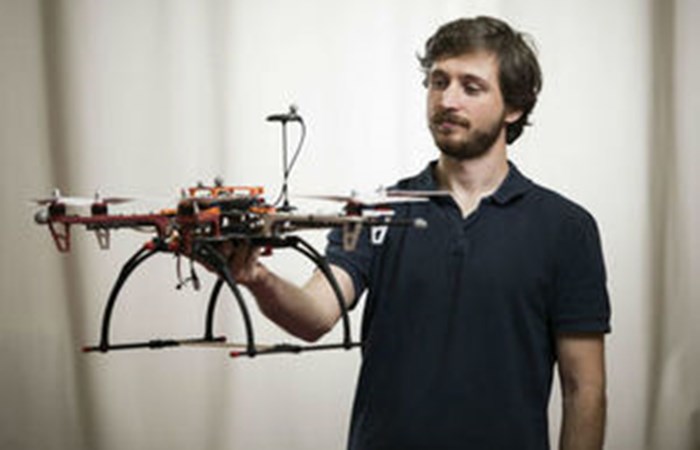Innovate UK

UK businesses and researchers will share 68 million with the aim of supporting safer working practices for people in extreme environments that could prevent potential harm and increase productivity.
The projects will each support the research and development of robotics and artificial intelligence (AI) technologies for use in industries such as offshore and nuclear energy, space and deep mining.
Minister of State for Climate Change and Industry, Claire Perry, announced the funding today at Innovate 2017. It is part the governments 93 million programme for robotics and AI in extreme environments, which is being funded through the Industrial Strategy Challenge Fund.
Across research and innovation
Investing in business
Innovate UK is giving funding to a range of projects for robotics and AI systems development. 16.5 million will be shared between 70 businesses, 13 universities and 10 research organisations for collaborative research and development projects. A further 3 million will go to 17 demonstrator feasibility studies.
Some of the projects include:
- using autonomous submarines to determine the ice risk hazards for shipping or the installation of energy assets in the Arctic. Project lead, Thurn Group will use autonomous vessels to survey ice retreat to better understand the threats of the surviving ice, to plot when its safe for people to use shipping routes or install or make changes to infrastructure
- integrating autonomous drones to inspect offshore-wind farms. Currently, a boat with crew has to go out to each turbine to carry out inspection and assess blade faults. A system that automatically deploys and recovers drones for monitoring would remove the need to send people into potentially dangerous seas or oceans while reducing costs and time. Perceptual Robotics are the lead
- manufacturing in space, such as the potential for in-orbit manufacture. This could be used for small replacement parts and tools, and possibly even large structures and spacecraft. BAE Systems are the lead
Robotics and AI in extreme environments. ISCF winners: Perceptual Robotics.
Ruth McKernan, Chief Executive of Innovate UK, said:
These pioneering projects driven by the very best minds in UK research and industry exemplify the huge potential of what can be achieved through the Industrial Strategy Challenge Fund and the long-term benefits for the UK economy.
These are just the first competitions in robotics and AI. There will be further opportunities for businesses in the coming months.
Robotics and AI in extreme environments. ISCF winners: Thurn Group.
Hubs for research
A 44.5 million investment will be made into 4 research hubs for world-leading research and robotic solutions. This will be managed by the Engineering and Physical Sciences Research Council (EPSRC). Commercial and international partners will support with an additional 51.6 million investment.
The hubs will lead investigations in the areas of off-shore energy, nuclear energy and space, opening up new cross-disciplinary opportunities which are not currently available. The UK Space Agency is co-funding one of the hubs.
Professor Philip Nelson, EPSRC Chief Executive, said:
The robotics hubs will draw on the countrys research talent to nurture new developments in the field of robotics and provide the foundations on which innovative technologies can be built. The resulting outcomes from this research will allow us to explore environments that are too dangerous for humans to enter without risking injury or ill-health.
The Industrial Strategy Challenge Fund is helping us achieve a joined-up approach to research, discovery and innovation.
Sensors for the ocean
To develop sensors capable of working in the ocean, Natural Environment Research Council (NERC) is investing 4.3 million into 5 research projects by the National Oceanography Centre, the University of Exeter and University of Southampton.
The sensors will help researchers to answer questions about our changing oceans, such as how carbon dioxide moves between air and water, as well as monitoring the health of cold-water corals in marine protected areas. They will be compatible with existing marine robotic vehicles and those in development.
NERCs Chief Executive, Professor Duncan Wingham commented:
Sensors help us to better understand our oceans and manage them sustainably for the future.
The projects will develop ambitious new technologies that work in hazardous and extreme environments, maintaining the UKs world-class status in marine robotics. Other industries, such as the water, aquaculture and industrial waste, are also likely to benefit.
About the Industrial Strategy Challenge Fund
The Industrial Strategy Challenge Fund is part of governments Industrial Strategy, which will ensure the UK continues to be one of the best places in the world for science and innovation.
Innovate UK and the Research Councils are taking a leading role in delivering this funding across the country. This will allow the UK to secure maximum benefit.
